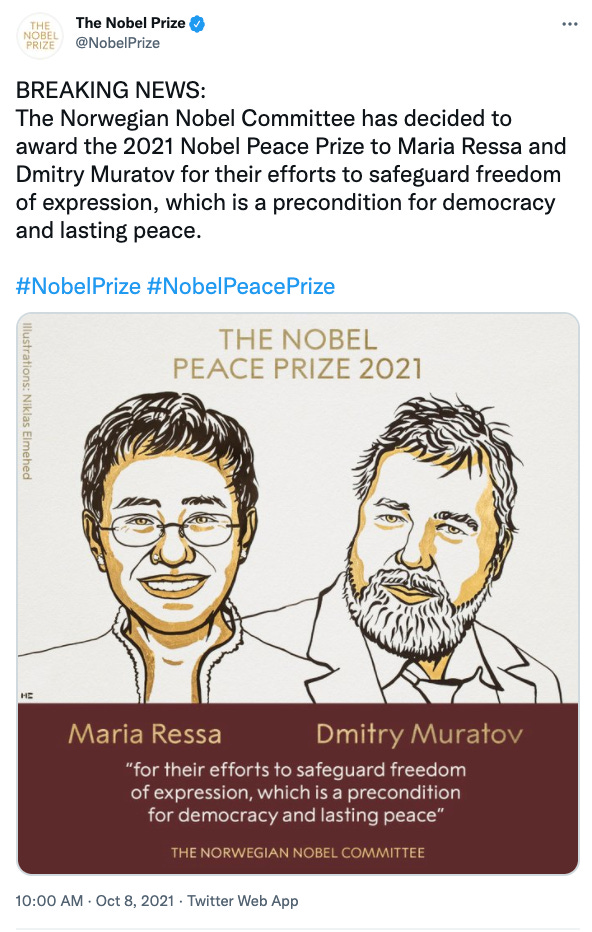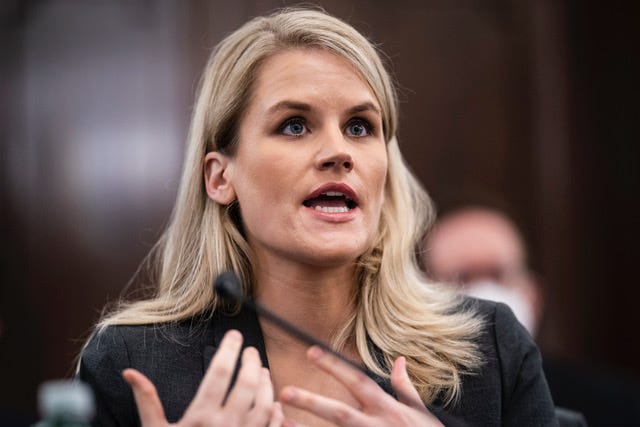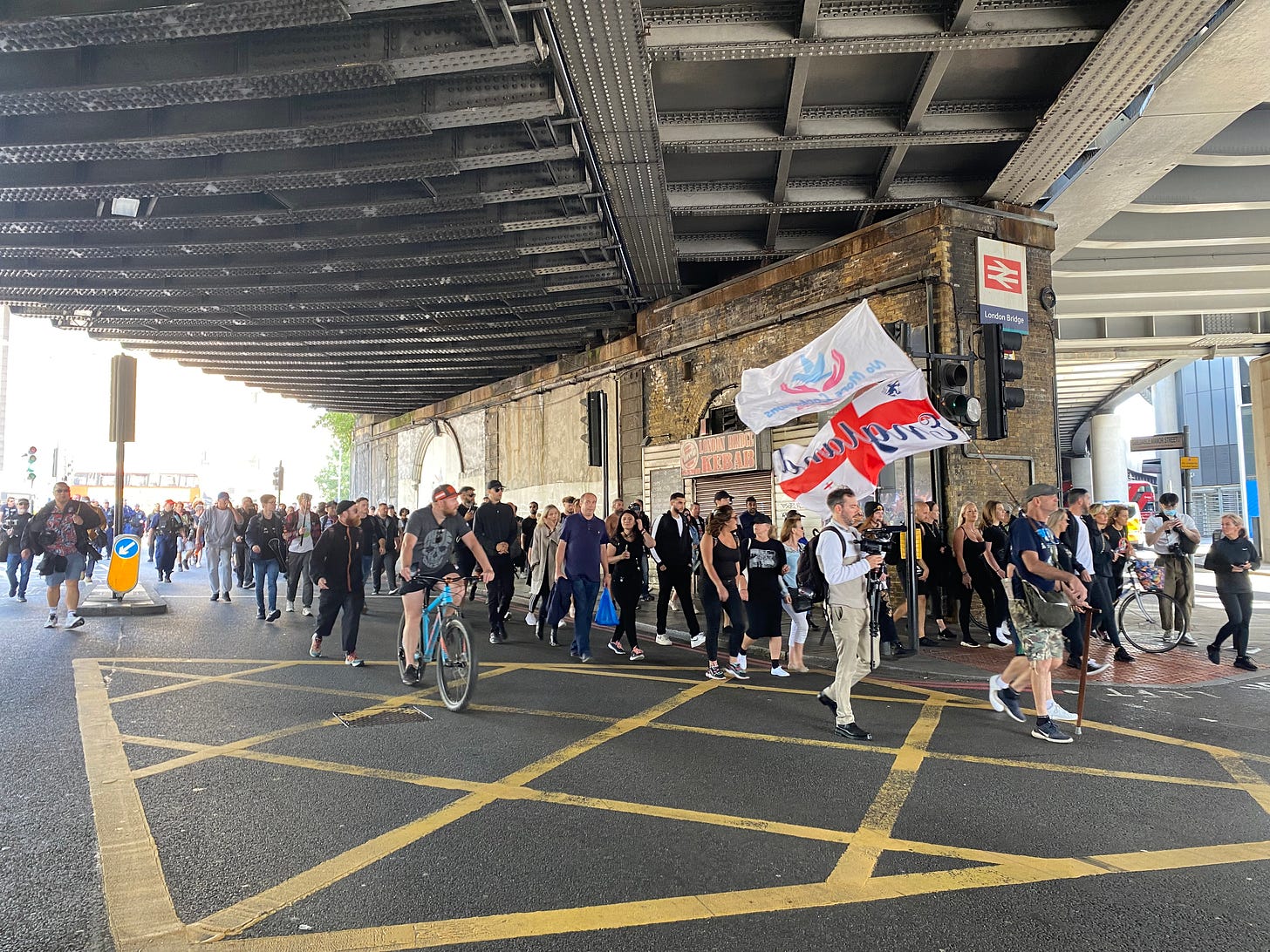'A lie told a million times becomes a fact'
Why Maria Ressa's Nobel prize is more bad news for Facebook
Welcome to Keeping the Receipts— a newsletter from the Citizens, this week written by Joanne O’Connor. You can read about the mission behind this here.
If you like what you see, consider forwarding it to a friend or two. And if you’ve been reading it for free and want to support our mission, please consider signing up to the paid version.
We were going to start this newsletter with the latest on Facebook’s Very Bad Week, but then came the wonderful news that Maria Ressa has been awarded the Nobel Peace Prize, along with the Russian journalist Dmitry Muratov, for their “efforts to safeguard freedom of expression.”
The founder of Manila-based news site Rappler, Maria has been a fearless and long-standing critic of President Rodrigo Duterte’s administration and a key player in the fight against fake news and disinformation. She is also an adviser to the Citizens and a member of our Real Facebook Oversight Board and we are incredibly proud to call her a friend and ally.
While this recognition is fantastic news for Maria, it just made Facebook’s Very Bad Week a whole lot worse. Because as well as being a courageous journalist, Maria is the human face of what it means to be a victim of Facebook. She has seen at close quarters what happens when an authoritarian leader is helped to power by lies spread on social media.
When she exposed the tsunami of state-sponsored propaganda and fake news being platformed on Facebook in the run-up to the Philippines’ presidential elections in 2016 she became the victim of a sustained online attack herself. Despite repeated pleas to Facebook to investigate and remove the fake accounts that were threatening and attempting to discredit her, no action was taken.
Here she explains how the big social media companies are complicit in assaults on democracy:

Earlier this year, Carole Cadwalladr interviewed Maria for the Observer and her message was clear: what happened in the Philippines could happen in America and it could happen here too. In some ways it already has. The election that brought Duterte to power took place just weeks before the EU referendum and, she said, foreshadowed it, not least in the role that Facebook played. And then of course there was the assault on Capitol Hill in January. “The Philippines was the first of the dominoes to fall,” she said.
Maria is currently facing a charge of ‘cyber-libel’ in the Philippines. If found guilty, the punishment is six years in prison. She has first-hand experience of the “tech dystopia” and for years has been trying to warn the West what’s coming down the line. “A lie told a million times becomes a fact,” she has told us time and time again. Maybe now people will start to listen.
Is this Facebook’s ‘big tobacco moment’?
We’ve been banging the drum for a while about the threat that unregulated big tech companies pose to global democracies. But on Tuesday we got an insight into the far more personal, but no less devastating, impact that social media apps like Facebook and Instagram can have on individuals.
The picture painted by Facebook whistleblower Frances Haugen as she stood before a Senate committee and testified against her former employer could not have been more stark: this is a company whose senior management are fully aware of the harms caused by their platforms, especially to children and young people, and yet they do nothing to protect users because they are driven by profit and expansion at all costs.
Senator Richard Blumenthal called it Facebook’s “big tobacco moment”. He said Facebook knew its product was “toxic and addictive to children” but they “valued their profit more than the pain that they caused to children and their families.”
The youngest member of our Citizens network, 19-year-old student Zamaan Qureshi, recently wrote about the negative impact that apps like lnstagram were having on his peers in Time magazine. And here he is on NBC’s Morning Joe politics show, accusing Mark Zuckerberg of “ruining the lives of a generation”:

Haugen’s allegations – that Facebook ignored its own research showing the harmful effect of Instagram on the mental health of young users, that it “keeps vital information from the public, the US government, its shareholders, and governments around the world” – are incredibly serious.
But the response from Facebook so far has been revealing. It issued a feeble attempt to discredit Haugen (she worked there for “less than two years” and “never attended a decision-point meeting with C-level executives,”) and then complained that it’s been asking Congress to bring in tighter legislation for internet companies for years. Which is another way of saying, we know what we’re doing is wrong, but we’re going to keep on doing it until it’s made illegal.
Time and again Facebook has shown that it is incapable of regulating itself. Or as Haugen put it:
“A company with control over our deepest thoughts, feelings & behaviours needs real oversight.
But Facebook’s closed design means it has no oversight - even from its own Oversight Board which is as blind as the public.”
It’s the reason we set up the Real Facebook Oversight Board a year ago, when the US was facing the very real threat of an election compromised by fake news, voter suppression and calls to violence, all hosted by Facebook. We warned back then that Mark Zuckerberg’s lack of accountability was dangerous. The revelations that have emerged in the last week prove that we were right to be worried.
Upping the anti: inside the UK’s anti-vax movement
One of the many accusations levelled against Facebook is that it has failed to take adequate measures against the rise of disinformation on the platform, including misleading information posted by anti-vax groups.
Our reporters Alice McCool and Kate Denkinson have been taking a deep dive into the UK anti-vax movement, looking at who the main players are, how they’re connected and how they are changing their tactics as the focus shifts to vaccinating teens and children. More from this investigation to come soon, but you can read their latest report in the Independent and watch a short film they made about the recent anti-vax protests here…

Conspiracy theories tend to thrive when trust in the government has been eroded. And nothing eats away at trust faster than the sense that decisions are being made behind closed doors, based on data and evidence shrouded in secrecy. This is one of the main reasons we helped to set up Independent SAGE at the start of the pandemic – to bring scientific debate around the Covid-19 response into the public domain.
The last few weeks have seen the vaccine roll-out in secondary schools get off to a faltering start, some four months after the MHRA approved the Pfizer vaccine for 12 -15 year-olds. The delay was largely due to the Joint Committee on Vaccination and Immunisation (JCVI), refusing to endorse the vaccine in this age group on the basis that the benefits were marginal.
This week Independent SAGE wrote a letter to the JCVI asking them to release the minutes of its meetings at which teen vaccination was discussed, in line with its own code of practice.
No minutes of meetings about Covid vaccines have been released since February and the data, risk-benefit analysis and evidence on which they based their decision have not been made public. The subsequent delay in rolling out vaccines to adolescents has seen more than 100,000 school children become infected with Covid since the start of term. One in ten children are currently out of school for Covid-related reasons. At the very least we deserve to know how they came to their decision.
Things we learned from the social media blackout
What did you do during the Great Social Media Blackout of 2021? Make a pie? Phone your parents? Question your life choices?
Setting aside the extraordinary timing of Facebook, Whatsapp and Instagram disappearing without trace just hours before a whistleblower was due to give evidence against their parent company, one of the most enlightening aspects of the six-hour outage on Tuesday was that it showed just how reliant on these apps many of us have become.
Apparently the Tory conference was thrown into a state of near-panic by the technical glitch. Politico editor Alex Wickham reported on panicked aides “desperately trying to teach their less tech savvy bosses how to set up groups on iMessage,” while “younger SPADS expressed horror at having to send text messages like they were communicating by carrier pigeon.”
It’s an amusing sketch but it highlights a serious problem – how fundamentally inappropriate these messaging apps are as a means of conducting official government business, when vital evidence and key communications can be wiped out in an instant.
We’ll be in court next week for a “permission hearing” which is the next stage of our ongoing legal challenge to prevent the use of disappearing messages for official government business. Thank you to all those who have supported our legal crowdfunder so far and who continue to support our work by subscribing to this newsletter.
The case has already thrown up some key pieces of evidence and there’s more to come next week. Watch this space!







